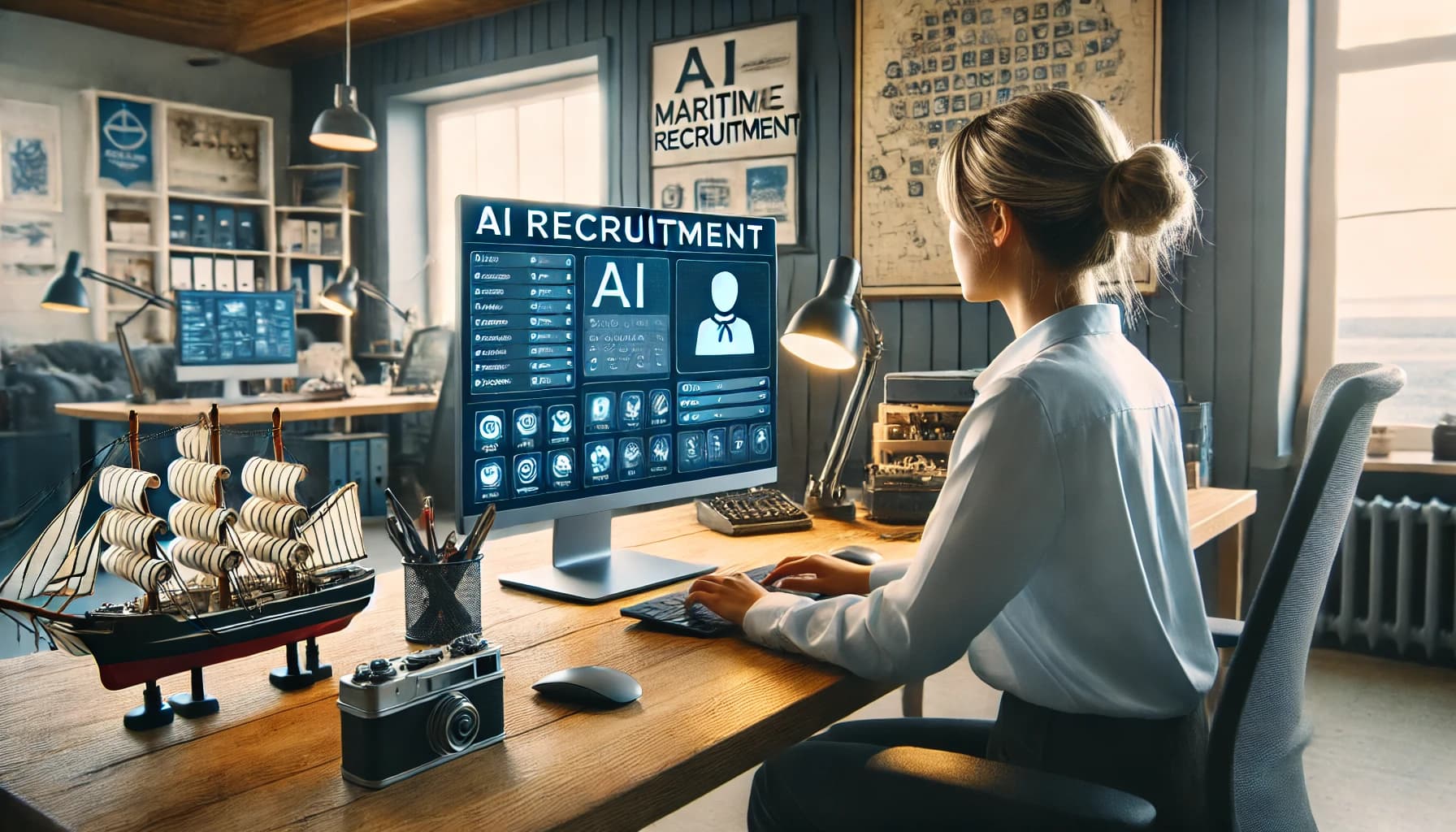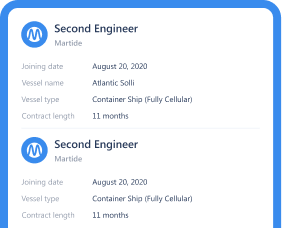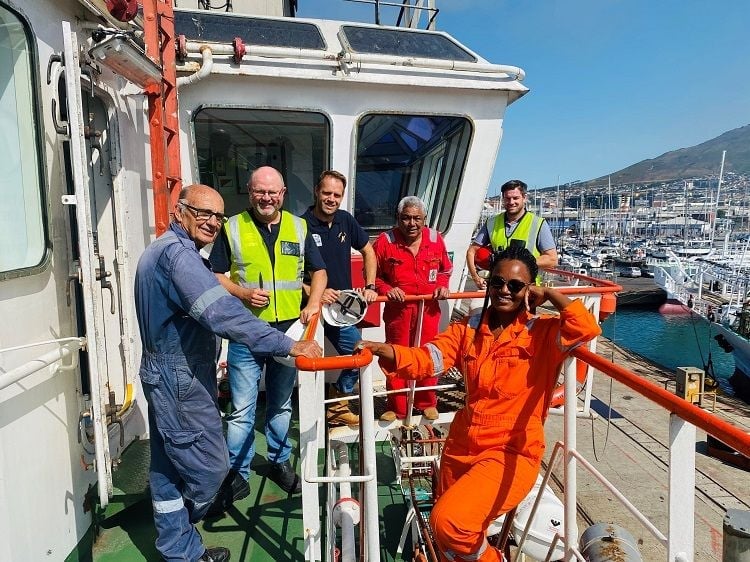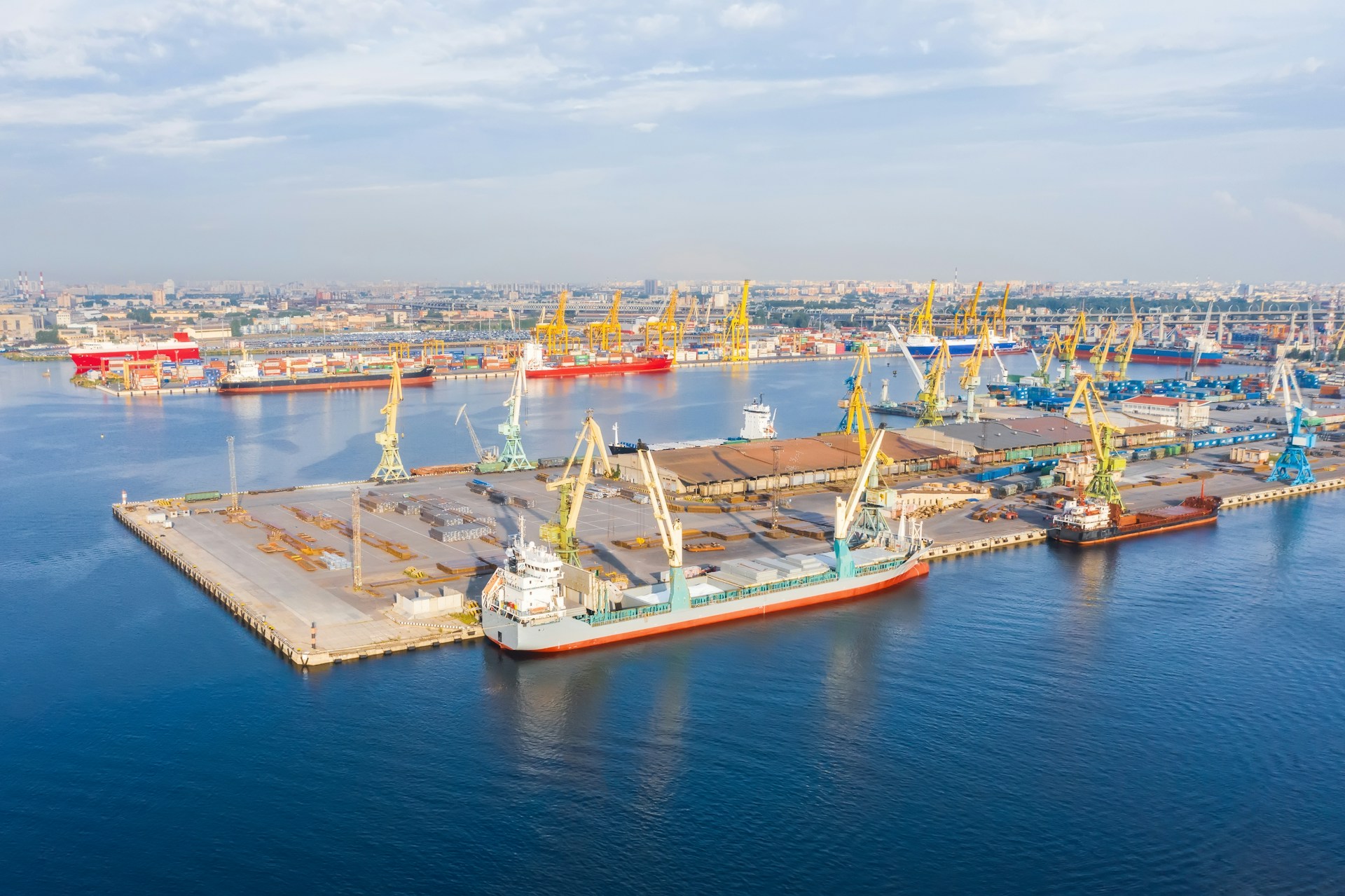Shore-Based Marine Jobs: Maritime Recruitment Officer
Oct 15, 2024 · 12 mins read ·
Maritime Industry
The maritime industry is one of the world’s most vital sectors, responsible for transporting more than 80% of global trade. Behind the scenes, a highly skilled workforce populating shore-based maritime jobs keeps vessels sailing smoothly, ensuring the flow of goods across oceans. And as with any large-scale industry, the key to its success lies in its people - and that’s where a Maritime Recruitment Officer comes in.
Working as a Recruitment Officer in the maritime industry is a unique and rewarding career ashore that involves sourcing, screening, and placing the right candidates in various roles at sea, whether that role is a Chief Officer or a Deck Cadet.
In this blog post, we'll dive into the responsibilities of a Maritime Recruitment Officer, see what a typical day looks like, and explore the skills required for the role. We'll also provide some advice on how to kickstart your career in this dynamic shore-based marine job.
The role of a Maritime Recruitment Officer
A Maritime Recruitment Officer (or Crewing Officer as they are sometimes called) plays a critical role in ensuring ships and shore-based operations are staffed with competent and qualified personnel.
The maritime industry covers a vast range of roles, from seafarers working onboard vessels to those in shore-based maritime jobs such as logistics managers, engineers, and operations staff.
The primary responsibility of a Maritime Recruitment Officer is to identify, assess, and place candidates in roles that meet the needs of shipping companies, offshore platforms, ports, or other maritime businesses. Recruitment in the industry is highly specialized due to the technical expertise and certifications required for many roles, particularly those at sea.

Read more: Shore-Based Maritime Jobs: What is a Shipbroker Job?
Key responsibilities of a Maritime Recruitment Officer
Much like ‘regular’ recruitment, recruiters working in jobs ashore in the maritime industry are tasked with finding the right candidates for the role. These are their main duties:
Sourcing seafarer candidates
Recruitment Officers actively search for candidates to fill various maritime positions. This may involve working with recruitment agencies (known as manning agencies in the shipping industry), using online job boards - such as Martide’s, attending career fairs, or networking within the maritime community. It's essential to maintain a pipeline of qualified candidates, particularly for highly skilled positions such as officers, engineers, and specialized deckhands.
Screening and interviewing
Once potential candidates are identified, Recruitment Officers review applications and resumes, conduct preliminary screenings, and arrange interviews. Screening often involves verifying the candidate’s credentials, licenses, and certifications, such as Standards of Training, Certification, and Watchkeeping for Seafarers (STCW) certificates, which are essential for seagoing positions.
Compliance and documentation
In the shipping industry, there is a heavy emphasis on compliance due to international regulations and safety standards. Maritime Recruitment Officers are responsible for ensuring that seafarers meet all legal and regulatory requirements, including medical certifications, visas, and work permits. This involves liaising with the relevant authorities and ensuring candidates’ records are up to date.
Read more: Shore-Based Maritime Jobs: Port & Harbor Management Jobs
Onboarding and deployment
After selecting the right candidates, Maritime Recruitment Officers oversee the onboarding process. For seafarers, this might include organizing their travel to the port of embarkation, arranging training, and ensuring they have the necessary documentation before joining a vessel. Shore-based marine roles require similar onboarding procedures, albeit with less emphasis on travel logistics.
Maintaining relationships
An important part of the job is building and maintaining relationships with both clients and candidates. Strong communication is key to understanding the needs of shipping companies and ensuring they are matched with the right crew. Additionally, maintaining long-term relationships with seafarers is crucial to filling future positions efficiently, particularly considering most seafarers work on a contract basis and roles will need to be filled on an ongoing rota of (normally) every four or six months.

A day in the life of a Maritime Recruitment Officer
Working as a Maritime Recruitment Officer involves managing multiple tasks, from sourcing candidates to conducting interviews and ensuring compliance with industry regulations. Here's a look at what a typical day might entail:
8:00 AM – Reviewing applications and shortlisting candidates
The day often begins by reviewing applications received overnight and shortlisting potential candidates. Many Recruitment Officers working in a shore-based maritime job use Applicant Tracking Systems (ATS) that streamline this process by flagging candidates who meet specific criteria. After shortlisting, you'll likely reach out to candidates to schedule interviews or request additional documentation.
Read more: Shore-Based Maritime Jobs: What Does a Maritime Lecturer Do?
9:30 AM – Candidate screening and interviews
You may spend the next few hours conducting initial screenings via phone or video calls. For seafarers, this process is particularly important as you’ll need to verify their experience at sea, certifications, and ability to adapt to life onboard. If you’re recruiting for shore-based marine roles, you’ll be looking for technical knowledge and relevant experience in logistics, engineering, or port operations.
11:30 AM – Coordinating with clients
Communication with clients, such as shipowners or management companies, is critical to understanding their specific staffing needs. Midday may involve meetings or calls with clients to update them on recruitment progress, discuss new vacancies, or review feedback on recently placed candidates.
1:00 PM – Lunch break - time to grab some well earned food!
2:00 PM – Managing compliance and documentation
After lunch, your focus might shift to ensuring that all candidates’ certifications, medical records, and documentation are in order. For seafarers, this includes verifying the validity of seaman’s books, licenses, and medical certificates. You might also liaise with embassies, flag state authorities, or maritime regulatory bodies to resolve visa or compliance issues.
4:00 PM – Onboarding and travel arrangements
If you've recently placed a candidate on a vessel or in a shore-based marine job, you’ll oversee their onboarding process. This can involve arranging travel, ensuring training is completed, and confirming that all necessary documents are in place for a smooth deployment.

5:30 PM – Wrapping up
At the end of the day, you might spend time updating your records, responding to emails, and planning the next day’s activities. Maintaining an organized workflow is essential to managing multiple roles, ranks, vessels, clients and candidates efficiently.
Skills and attributes of a successful Maritime Recruitment Officer
To succeed as a Maritime Recruitment Officer, you'll need a mix of interpersonal skills, industry knowledge, and attention to detail. Here are some key skills and attributes that are essential for the role.
Strong communication skills
You'll need excellent communication skills to interact effectively with both candidates and clients. Clear communication ensures that everyone involved in the hiring process is on the same page, and it helps build trust and long-term relationships.
Attention to detail
This is something that is crucial in both jobs at sea and in shore-based maritime jobs. The industry is heavily regulated, and small mistakes in documentation can have serious consequences. Recruitment Officers must be meticulous in reviewing certifications, visas, and contracts to ensure full compliance with international standards.
Industry knowledge
An understanding of the maritime industry is crucial. Whether you’re recruiting for positions at sea or jobs ashore, knowing the specific requirements, certifications, and challenges of each role is vital to placing the right candidates. This is why working as a Maritime Recruitment Officer can be a popular choice for ex-seafarers who are looking to move into a shore-based marine job.
Multitasking and time management
Recruitment in the maritime industry is fast-paced, with multiple candidates, clients, vessels and crew change dates to juggle at once. Strong organizational skills and the ability to prioritize tasks effectively are key to staying on top of your workload and to making sure that ships have the correct complement of crew ready to board when the time comes.

Cultural awareness
Given the international nature of the shipping industry, recruitment often involves working with candidates from diverse cultural backgrounds. Being culturally sensitive and aware of different communication styles is important in making the maritime recruitment process smooth and respectful.
Problem-solving abilities
Maritime recruitment often comes with unexpected challenges, such as candidates dropping out at the last minute or issues with visas or other required seafarer documents. Being able to think on your feet and resolve problems quickly is a valuable skill.
Careers ashore: How to start working as a Maritime Recruitment Officer
If you’re interested in pursuing a career as a Maritime Recruitment Officer, here are a few steps to help you get started.
Education
A degree in human resources, business administration, or maritime studies can provide a solid foundation for a career in recruitment. While not always required, these qualifications can give you an edge, especially if you're new to the industry and haven’t worked in a shore-based marine job before.
Gain industry experience
Familiarity with the industry is crucial. If you don’t have a maritime background, and haven’t worked in a shore-based job in the maritime industry, consider working in a related field such as shipping operations, logistics, or marine engineering. Experience in any of these areas will give you valuable insight into the roles you’ll be recruiting for.
Recruitment experience
If you don’t have direct maritime experience in a career ashore, starting as a general Recruitment Officer can help you build the necessary skills. Look for positions with staffing agencies or HR departments that allow you to learn the ropes of recruitment.
Networking
Building relationships within the maritime industry is key to becoming a successful Recruitment Officer. Attend industry events, join professional organizations, and stay in touch with past candidates and clients. LinkedIn is also a great way to make connections with other people working in shore-based jobs in the maritime industry.

Stay up-to-date with regulations
The maritime industry is constantly evolving, with new regulations and requirements emerging regularly. Stay informed by following updates from organizations such as the International Maritime Organization (IMO) and flag state authorities.
Shore-based maritime jobs in recruitment: Final thoughts
Working as a Maritime Recruitment Officer is both challenging and rewarding. You'll play a vital role in ensuring that ships and shore-based operations are staffed with the right people, contributing to the smooth running of the global maritime industry.
If you have strong communication skills, attention to detail, and a passion for helping people find the right role, this could be a fulfilling career path for you. By gaining relevant experience, building your network, and staying informed about industry trends, you can successfully embark on a career in this dynamic shore-based job in the maritime industry.
Read the previous article in this series: Shore-Based Maritime Jobs: Maritime Regulatory Jobs
Read the next article in this series: Shore-Based Maritime Jobs: How to Become a Marine Surveyor

Eve Church
Eve is Martide's content writer, publishing regular posts on everything from our maritime recruitment and crew planning software to life at sea. Eve has been writing professionally for more than two decades, crafting everything from SEO-focused blog posts and website landing pages to magazine articles and corporate whitepapers.
UK



